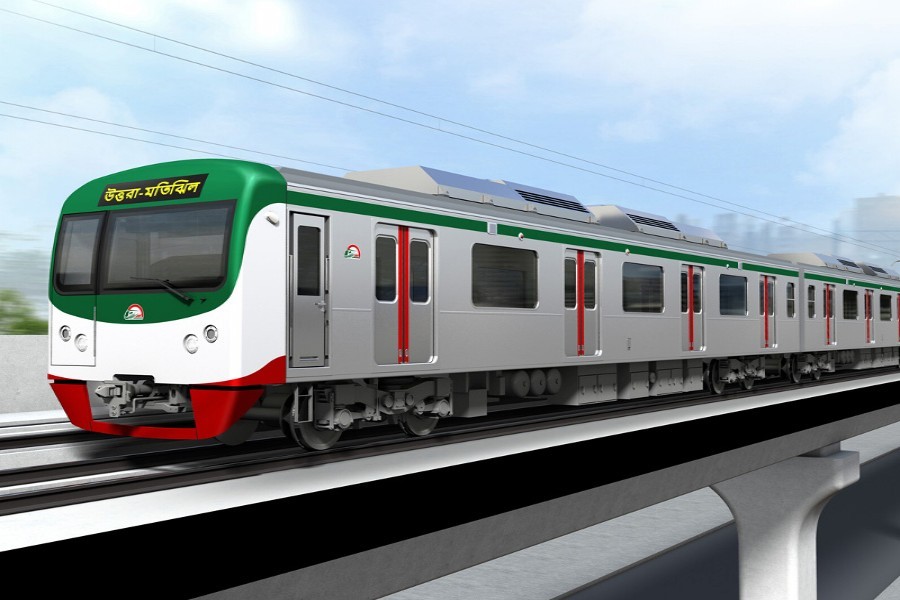Following the two successful separate trial runs, the MRT-6 metro rail appears to be near-materialisation. The Dhaka dwellers living in a large part of the city heart now wait in bated breath to see their elevated dream train speed in the first segment of its route. The countdown to the day in coming December has begun in earnest. With the Diabari-Agargaon segment of the total 20.1km Uttara-Motijheel route being given the finishing touch, the largest urban communication infrastructure in the country awaits its formal inaugural. The traffic jam-plagued Dhaka dwellers look to the day when they can commute in the capital freely without remaining stuck in the snarl-ups.
With the daily passengers set to begin travels on the MRT (Mass Rapid Transit)-6, the Dhaka North City Corporation (DNCC) has detected a fault in the massive set-up. According to media reports, it relates to the planning of the stairs-cum-escalators. They end in the footpaths below down from a 3-storey height of the stations. The problem lies with the width of the narrow footpaths, the largest space of which is feared to be occupied by the stairs. After an inspection of the landing point of the station stairs and the footpaths at the Mirpur-10 station, the DNCC mayor has found the widths of the stairs and the footpaths at 7.0 feet and 8.0 feet respectively. To his bewilderment, he discovered that only one-foot width had been kept for the pedestrians' movement. It would lead to a total bedlam and chaotic situation every time a train arrives at the station or minutes before a train leaves stations. A ward councillor has not ruled out unwarranted incidents amid the hassle involving the train passengers and the footpath users. The MRT-6 authorities appear to be confused. But they are optimistic about finding a pragmatic and lasting solution to the problem.
With the already declared date of inauguration of the MRT-6 route approaching fast, the authorities have only one option open before them. It is acquisition of land adjacent to the footpaths. They believe by using the newly acquired land the footpaths can be widened. At this point experts observe that this all-important thought ought to have occurred to the planners at the time of starting the project --- i.e. eight years ago. Another disincentive vis-à-vis the use of the city's elevated metro rail is the direction of the feeder roads. Experts have found that these roads are not constructed aimed at helping the metro passengers reach the stations smoothly. It might cause trouble to them and discourage many from travelling by metro. However, in response to it the Dhaka Mass Transit Company Limited (DMTCL) says in the near future 'transport oriented development hub' will be constructed around the metro stations.
The future metro rail travellers feel delighted at the news of the state-of-the-art style construction of the station interiors. Besides, the construction work of nine stations along the 11.73 km Diabari-Agargaon route is nearing completion. At the stations, construction of facilities for climbing up the stairs and coming down, escalators and lifts has been completed. To speak in a nutshell, the work on the elevated metro rail is progressing well. If the recent pandemic-related lag and sloppiness caused largely by inexperience could be made amends for, the project could be expected to be in place by the deadlines.


